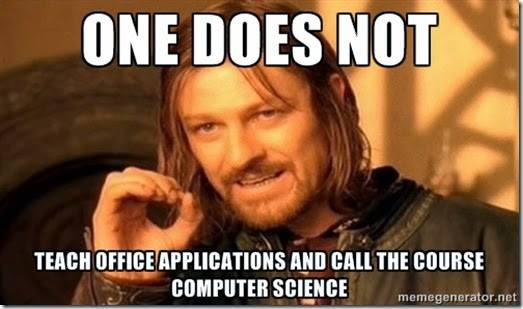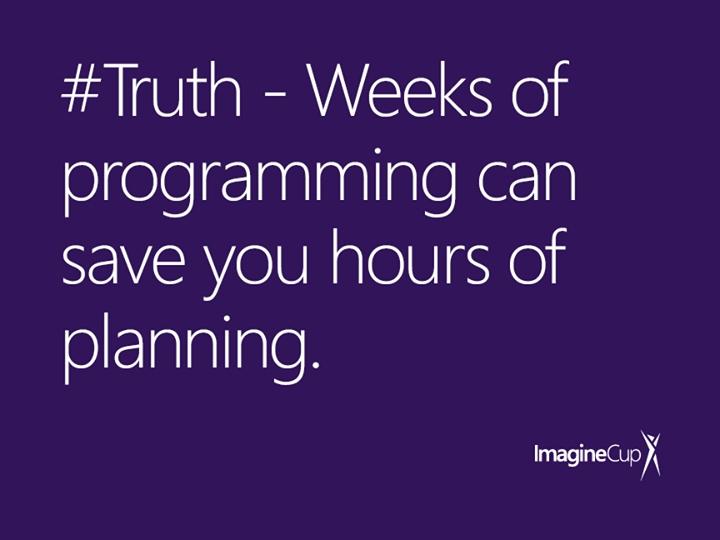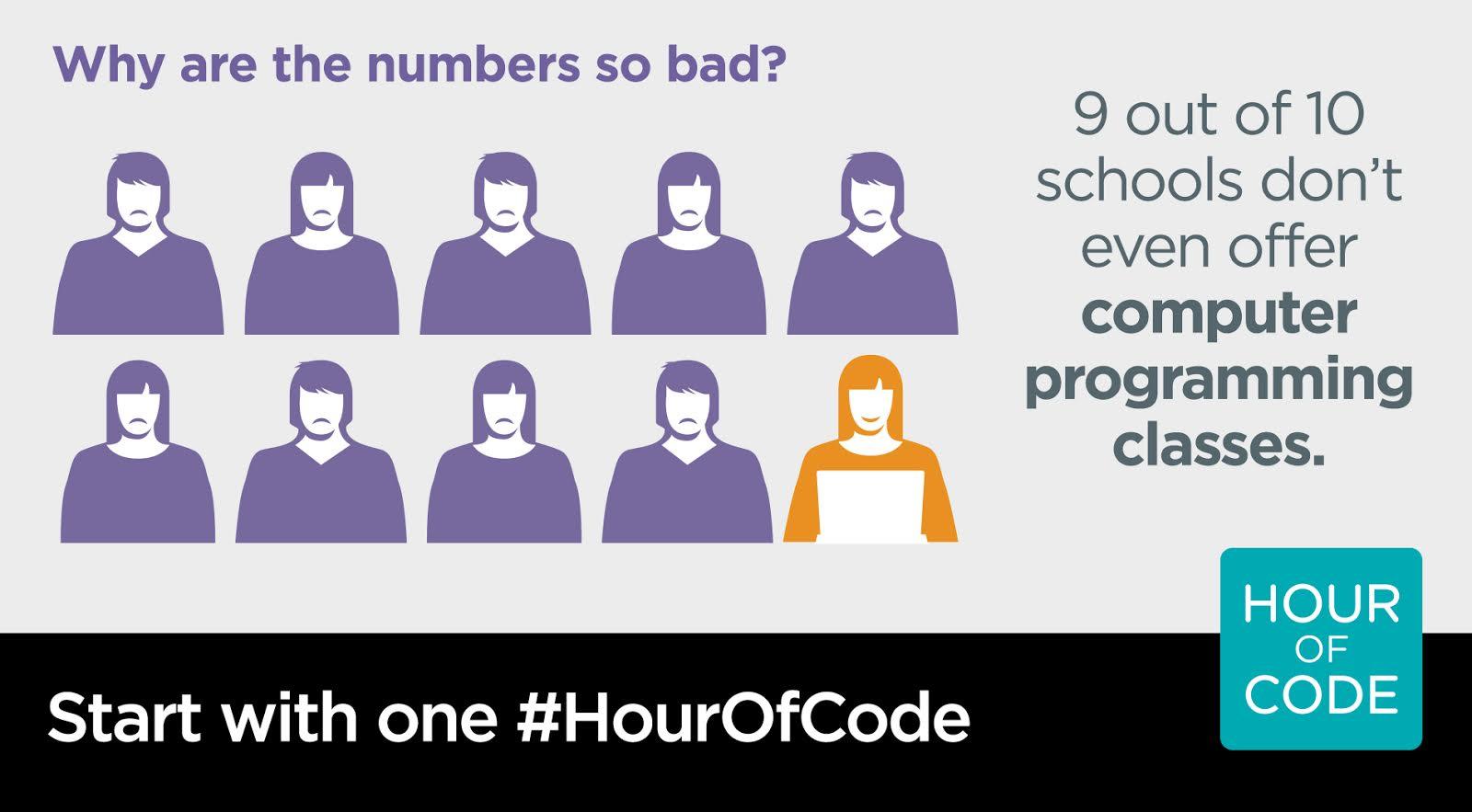I love this meme image. When I tweeted it there was a lot of activity on it so I suspect it resonates with a lot of people.

Most people who understand what computer science is will quickly agree that teaching office applications is not teaching computer science. On the other hand one certainly can use some of those applications to teach computer science. Excel comes to mind immediately.
In a comment on Mark Guzdial’s blog recently Shriram Krishnamurthi from Brown University said:
Personally, I think one of the great unexploited opportunities is in the teaching of spreadsheets for computation. In the real world, all sorts of people use it as their primary programming mechanism; I argue that Excel is maybe the world’s most widely-used functional and reactive programming language.
In our Explorations of Computer Science class we use spreadsheets to look at data of various types. We use sorting to help organize the data. We use conditionals as well. We use IF statements, conditional formatting and other forms of decision structures in our processes. These are all computational (even programming) concepts. Students learn about Boolean expressions even if they don’t always realize that is what they are doing.
Of course we also use build in functions. Average, Sum, Min and Max are just a few of the functions that students are introduced to. There are of course many more that we could use. Using these methods introduces parameters, return types and other concepts of using methods and functions. Naming data regions helps understand abstraction
I’ve long advocated the use of computing (with or without programming languages) across the curriculum. Treating all subjects in isolation seems wrong and a poor preparation for life outside of school. With the school day already so full in most schools it would seem that finding ways to use software, like spreadsheets, to teach in other subjects would be a natural idea. Teaching spreadsheets for the sake of teaching spreadsheets is wasteful. Teaching students how to use spreads sheets to solve problems and to better understand the numbers involved in science and social studies on the other hand kills two birds with one stone.

 FWIW the web app we created in class today can be found at
FWIW the web app we created in class today can be found at 
